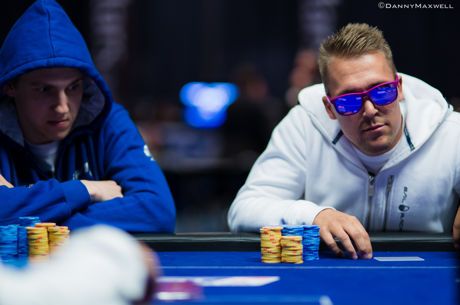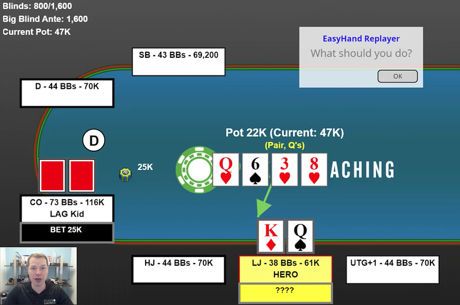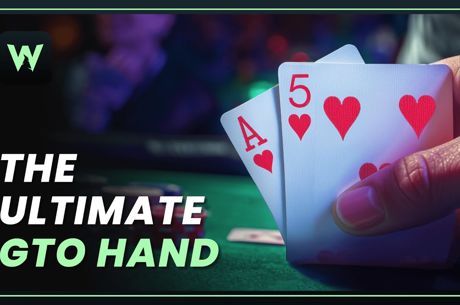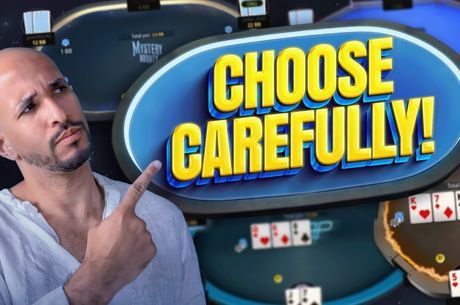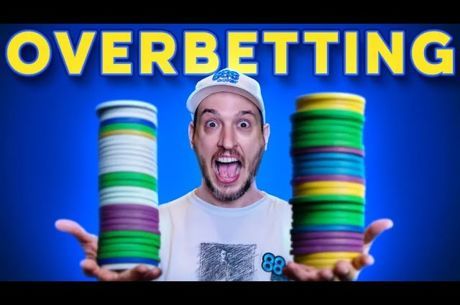Variance Gets a Bad Rap

Variance gets a bad rap in the poker community, but without it, our game would not exist.
Variance is a mathematical concept from the world of statistics that is tough to understand fully in layman's terms. When we refer to variance in poker, we simply mean it as a measure of how often we actually get the result we expect to get.
For example, if you go all in for $100 and someone calls to create a $200 pot, you should expect to win half the time in the long run, provided you get by a hand with 50% equity on average. If that's the result you actually get, then you have broken even and experienced no variance. If you win or lose more than half the time, then you have experienced variance or a variation from the expected result.
You may experience positive variance and win more often than you should, or negative variance and lose more often than you should. These results are out of your control, and they also aren't governed by some vengeful variance deity. No, you are not a poker wizard, and no, the universe is not out to get you.
Defined in this way, it is clear that variance is just a neutral measure of luck. It is neither good nor bad, but we tend to blame negative variance when we get unlucky without crediting positive variance when we get lucky.
In terms of results, variance is neutral, but in terms of its effect on the health of the poker ecosystem, it is very positive. Without the chance to get lucky, less skilled players would not play the game. So if we all experience variance (or luck) the same, where does poker profit come from?
Understanding variance does not mean concluding that poker is a crapshoot. Your skill earns you theoretical profit before the money goes in. After that point, there are no more decisions to be made and all that is left is for variance to dole out rewards and punishments in an equitable manner. Since there is nothing we can do to create profit after the money goes in, we must forget about variance and focus on what we do before that point.
In terms of results, variance is neutral, but in terms of its effect on the health of the poker ecosystem, it is very positive.
Let's revisit the earlier example. There is nothing you can do to control the result once you go all in and get called. But what if you could regularly get called by a hand that only has 33% equity? Now you have earned a theoretical profit by putting yourself in a favorable position. You may still lose the hand 10 times in a row, but that does not matter. In the short run, you are just experiencing negative variance. You shouldn't get any more worked up over it than if you experienced positive variance and won 10 hands in a row.
What makes this game so great is that you can mitigate this element of luck by improving your ability to find favorable spots. Maybe next time you can get it in against a hand that only has 20% or 10% equity. The only way to remove variance completely is to get all in with a hand that is expected to win 100% of the time. Obviously, we can't always get called when we have the nuts, but we can approximate this in two ways. We can either force folds, preferably on the turn or river, or get value on the river with the best hand.
Forcing Folds on the Turn or River
Forcing your opponent to fold is always a great outcome. Doing so effectively turns your hand into the nuts since you win 100% of the time your opponent folds.
If you can do this repeatedly, you will experience no variance and have nothing but realized profit, which is much nicer than the theoretical profit we earn when we get it all in with the best hand before the river. Additionally, these profits increase as the pot size increases, which is why we'd rather get these folds on the turn or river than earlier in the hand.
Most recreational players know how to use preflop shoves to force folds and win small pots. We also know how to make flop continuation bets or shove over them in order to win medium pots. These plays are enough to keep us close to break even or maybe slightly profitable, but they don't work often enough to insulate us from the effects of variance.
When you force folds on these early streets, you win poverty level pots. When you get called, you often have somewhere around 40-60% equity on average and are forced to hope and pray that variance sheds its grace on thee.
More skillful players have learned that they do not have to settle for this. They keep money behind in order to play turns and rivers more often because they realize that variance decreases, while the pot size and potential profit increases, with the number of streets played. They make more money than us by getting calls on earlier streets and forcing folds on later streets once the pot has grown.
This approach results in them winning comfortable, middle-class pots with less variance while we settle for small-to-medium poverty pots with more variance. That is what separates the recreational players from the regulars.
In fact, the elites at the top of the food chain have learned to do even better than forcing folds in big pots on the river. They are also better than everyone else at getting called in these pots when they have the best hand.
Getting Value on the River
Many recreational players get PTSD at just the mention of the word "river." This is understandable. We often get all of our money in preflop or on the flop as a 55-65% favorite and are utterly shocked when we lose 35-45% of the time. Damn, rivered again! Naturally, this is where we curse the name of variance almighty when we would have congratulated ourselves on the sick hold had we won. This is not a variance problem. It is a gambling problem.
Regs instead look for ways to force a fold in a bigger pot on a later street or get their shove called on the turn when they are closer to a 75-85% favorite. More profit and less variance are better, but it is not as good as all profit and no variance which is what you get when you successfully value bet the river.
The best players in the world understand that poker is a game of information and that the maximum amount of information can be obtained on the river. They seek to get there against players with wide and weak ranges that are often capped. They are usually able to narrow these ranges down to just a few combos and then use the knowledge they have gained about their opponent's tendencies to craft almost foolproof bluffing and value betting strategies.
If they suspect that they can get you to fold the best hand, they bluff you off of it and lock up a nice big pot. If they suspect that they can get you to call with the worst hand, then they value bet and lock up a massive, millionaire pot.
There is no such thing as variance on the river, so they have no cosmic force to blame when they lose. They blame themselves which allows them to get better at ranging and reading their opponents for next time. In their world, variance is vindicated because they live and die on the river where skill is king.

